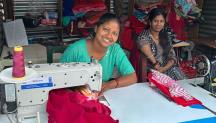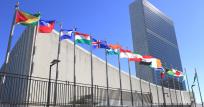
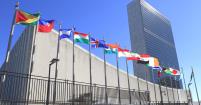
IRENA at UN High-Level Dialogue on Energy: Mobilising Action Through Energy Compacts
Newsletter
Ambitious and targeted actions are needed now and throughout the coming decades to ensure the goals of energy access for all are fulfilled and a decarbonised energy system is achieved by 2050.
To accelerate action in line with the Sustainable Development Goals and the Paris Agreement on climate change, the United Nations have been mobilising voluntary multi-stakeholder commitments on energy, so called Energy Compacts. Nearly 760 million people around the world still lack access to electricity. And global temperatures are rising with the use of energy accounting for three-quarters of global emissions.
With more than 10 Energy Compacts submitted alone or with strong partners under the UN’s High-level Dialogue on Energy taking place from 22-24 September, IRENA is at the heart of mobilising global action. “We know that projects alone will not deliver transformation”, IRENA’s Director-General Francesco La Camera said during the high-level meeting in New York. “IRENA is therefore forming strong multi-stakeholder alliances with governments and private sector to accelerate action on energy transition.”
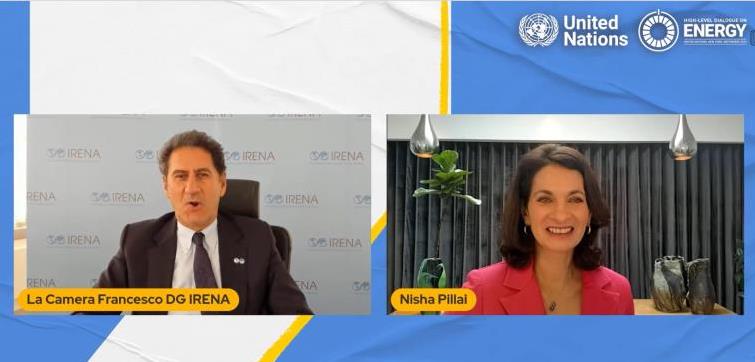
“Our compacts will shed light on technology pathways and investments in different regions of Africa, Europe and Latin America. They will detail the socio-economics footprint to help create industries and millions of jobs. And importantly, it will offer policy options for enabling frameworks, while ensuring a just and inclusive transition.”
In close cooperation with many partners, IRENA’s energy compacts cover a broad range of energy - from advancing green hydrogen, the food-energy-nexus and project facilitation to mobilising capital for energy projects. In partnership with the European Union, IRENA will provide technology pathways and investments clarity at regional level. Overview of IRENA compacts:
- Green hydrogen - Together with other stakeholders, IRENA commits to support the deployment of a total of 268 GW of new renewable energy capacity by 2030 and more than 25 million tonnes of green hydrogen.
- Energising Agrifood Systems with Renewable Energy – Together with FAO, IRENA commits to undertake at least 5 agri-food system assessments to facilitate renewable energy adoption and support pilot programmes/projects in at least five countries/regions through partnerships.
- African Renewable Energy Initiative – Together with AREI, IRENA commits to facilitate the development of at least 300GW of renewable power in Africa by 2030 by supporting regional and continental processes through knowledge and technical assistance.
- Offshore Wind – Together with GWEC, IRENA commits to advancing 380 GW of offshore wind installed worldwide by 2030 and 2,000 GW by 2050.
- Project Facilitation – IRENA commits to mobilise USD 3 billion for financing and implementation of low-carbon and climate-resilient renewable energy projects and facilitate at least 100 projects towards investment readiness by 2030.
- Renewable Energy for Latin America & the Caribbean – Together with other stakeholders, IRENA commits to facilitate RELAC’s target of 70% renewable energies participation in the installed capacity and electricity generation in the region by 2030.
- Lebanon – Together with Lebanon, IRENA commits to support Lebanon generating 30% of its power demand and 16.5% of its heat demand from renewable energy sources in 2030.
- Gender and Energy – Together with other stakeholders, IRENA commits to enhance gender equality and women’s empowerment e.g. by increasing projects receive funding through gender-responsive financing mechanisms by at least 10% by 2030.
- Islands Energy Transition towards a 1.5C degrees world – Together with AOSIS, IRENA commits through the SIDS Lighthouses Initiative to supporting all SIDS achieve a total of renewable energy installed capacity of 10GW by 2030.
- Scaling up geothermal heating and cooling globally – Tother with the GGA and IGA, IRENA commits to define the Global Geothermal Alliance’s goal for geothermal heating and cooling in 2030 to achieve a three-fold growth compared to 2014.
- Multilateral Energy Compact for Health Facility Electrification – Together with other stakeholders, IRENA commits to provide 25,000 health facilities with sustainable energy access and conduct 20 sector assessments of healthcare systems at national level.
- Regional Energy Transition Outlooks – Together with the European Commission, IRENA commits to prepare Regional Energy Transition Outlooks for Africa, Latin America and the Caribbean and Europe including concrete policy recommendations to achieve SDG7 in line with the 1.5 degree Paris objective.
Energy Compacts are voluntary commitments from Member States and all other stakeholders, such as companies, regional/local governments, NGOs and others with the aim to advance progress on SDG7 and net-zero emissions. The global gathering in New York marked just the beginning of a decade-long process in support of the “Decade of Action”, showcasing the first set of ambitious Energy Compacts from across stakeholder groups. “IRENA is committed to leading this era of change, so that we can harness the power of modern markets and new technologies for a prosperous and resilient future for all”, La Camera concluded.
Global roadmap on energy transition
One of the major outcomes of the process of the UN’s High-level Dialogue on Energy Dialogue will be a forward-looking statement setting out a global roadmap for concrete actions needed to ensure access to energy for all and a climate-safe energy system. The global roadmap will be based on recommendations of five working groups. Together with UN ESCAP and UNEP, IRENA has been taken the lead in the working group that aims to accelerate energy transition.
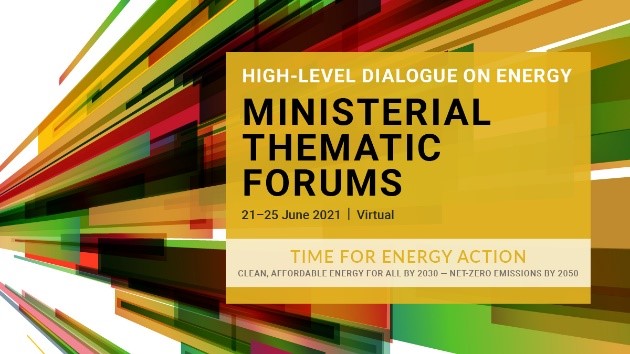
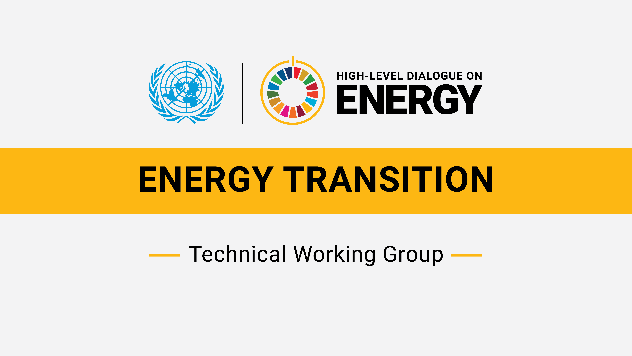
Under the working group, eleven concrete recommendations haven been put forward to global energy leaders on energy transition. Based on IRENA estimates, an almost tripling of renewable energy would enable the 2030 Agenda and provide a decisive shift towards a decarbonised system in 2050, reaching some 8000 GW of global renewable capacity by 2030 from today’s 2799 GW.
Read the full Report on Energy Transition “Towards the Achievement of SDG7 and net-zero emissions”
